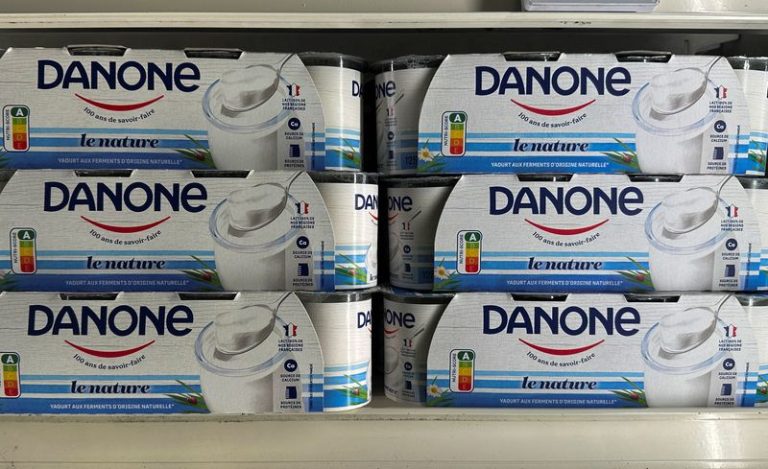Given the deal that we are seeing and how that is progressing between the US and China, the word right now from the US, at least from Donald Trump, is that the deal is done. What are you making of these prima facie details that are emerging from the deal? Of course, we do not have the fine print of the deal yet, but nothing ever is at face value when it comes to US and China. So, what is your take on the agreement that the two nations have reached and how sustainable do you think this is going to be in terms of the tariffs that they have decided to impose on each other?
Shaun Rein: That is a great and big question. Trump is saying the deal has been signed and he has been talking about that the Chinese are going to send rare earths and magnets in advance to whatever the United States needs because what you have seen in the last month is the lack of rare earths that were exported to the United States has really crippled the American economy.
You can have companies, the big automakers like Ford and GM are rumoured to say, we need to relocate our manufacturing to China, so we can get access to rare earths despite the heavy tariffs that they would then incur by going into the United States. But here is the thing, China’s media has been a lot more circumspect with the details of this so-called trade agreement.
China has said the rumour is that they will give maybe export licenses to rare earths on a six-month trial basis to American companies. So, basically Trump is exaggerating the win in his mind and China is being a lot more honest probably saying well we do not have all the details ironed out, we want to come to an agreement but quite frankly China has the upper hand in the trade war with the United States right now.
Everything that the United States makes except for semiconductors, the Chinese can buy elsewhere. So, instead of buying American beef, they are buying Australian beef; instead of buying American oil, they are buying Canadian oil; instead of buying American soybeans, they are buying Brazilian soybeans. So, what you have seen is that there is a total shift in trade patterns and a total shift in power and China is at the top of the triangle, the top of the pyramid right now in terms of buying goods and trading goods from other countries. We are seeing a shift in world order right now.
But are there signs of that on what the bond and the equity markets are telling you right now because you have got the S&P at an all-time high of 6,000, does not seem like there is any concern around the tariffs and the repercussions or the changing world order as you said.
Shaun Rein: Well, I mean that that is not true. I mean, Chinese equity markets are up 15-16% since the start of the year while the S&P 500 is only up about 2%. So, it is quite clear that the Chinese Hong Kong equity markets are outperforming the United States right now.
Now the equity markets also do not necessarily reflect the economy. So, what you are seeing right now is Abigail Johnson, who is the head of Fidelity, the rumour is today that her private investment house is going to be selling 40 Chinese tech companies that they have long held because they are worried about the regulatory and I have been talking with a lot of mutual funds, I have been talking with a lot of LPs like pension funds and endowments and they are getting huge pressure from not just Trump, but previously under the Biden regime to derisk by not investing in Chinese equities, so that does not mean the economy is bad, that just means more oppression and bullying from the United States because they are trying to really contain China’s economic growth.
That might have happened eight years ago and that might have worked eight years ago. But the big problem is the United States has gone after Europe. The United States has gone after Canada. You even hear Howard Lutnick, the Secretary of Commerce, criticised India last week and said, why is India buying Russian weapons, they should be buying American weapons.
So, the reality is the United States under Trump and Biden has been bullying people all around the world. And I think at some point the global south or I prefer to call it the global majority is saying you know what, let us not deal with all the drama, let us not deal with weaponization of the US dollar, weaponization of technology and let us move closer towards China where we have a lot more stable relations economically.
Absolutely, and one can see that impact on both the HSI as well as the Shanghai index. But that is the case with even a DAX or Australia or for that matter even the S&P 500 index. But do you now see a lot of money moving towards China dedicated funds?
Shaun Rein: Well, with Australia for instance, Australian dollar has strengthened in the last couple weeks because basically Australia is a proxy for China. Australia’s economy does well when China’s economy does well, whether it be buying iron ore, whether it be buying tourists going to Australia to buy products, so that is why the Aussie has strengthened and the US dollar is weakened. Now when it comes to liquidity and volume going back towards China, we are still at a very initial stages.
Most of the global funds only have about 25% of their holdings exposed to China. I recommend retail investors to have 15% to 20% because of the volatility and the regulatory fear.
So, we are seeing in my conversations with institutional investors like hedge funds that they want to come back into China, but they have not come back yet. Now, that gives a great opportunity for speculators and people who have a high-risk appetite to trade in front of the institutional investors.
So, personally, I am getting more exposure to Hong Kong equities the last six months because I am trying to front run what the hedge funds are doing because they still have not quite gotten into the markets yet and they will in the next three to six months because they have to make the business case, China is outperforming the S&P 500.
The financial market seems to be welcoming this particular news, but many experts caution that this is just a framework and the details remain a bit light. Give us some sense that apart from this rare earth issue that is impacting many industries including and majorly the automotive sector which other sectors do you believe there has to be a deal between US and China and where stands a chance where US has to go ahead and make deals in some of the other sectors.
Shaun Rein: Well, the United States needs a deal. Frankly, China controls about 30-35% of global manufacturing. So, America might have the money, they might have the capital, but they need to buy the products from China. At the end of the day, China makes not just rare earths, about 90% of refined rare earths, but they also make most of the ibuprofen, most of the Tylenol.
Most of the antibiotics in the world comes from China. So, at the end of the day, that is real leverage. So, for instance in 2017, 18% of Chinese exports went to the US, that number is down to 14%. China on the other hand has shifted and exports to Asean, has gone up to 16%.
So, basically, it is a game of chicken right now. China’s economy is hurting, do not get me wrong. There are about 15 million people who are involved in the export sector. You have seen that the CPI index has dropped about 0.1%. So, we are dealing with the D-word, deflation.
So, the economy in China is not booming, but China is not going to blink. They have the resolve to push hard back against Trump and Scott Bessent and Howard Lutnick because at the end of the day, the Americans need to buy from China. They cannot buy antibiotics from any other country in the world except for a little bit from India.







